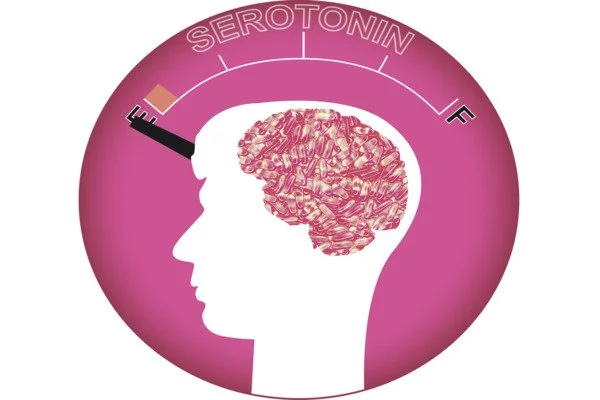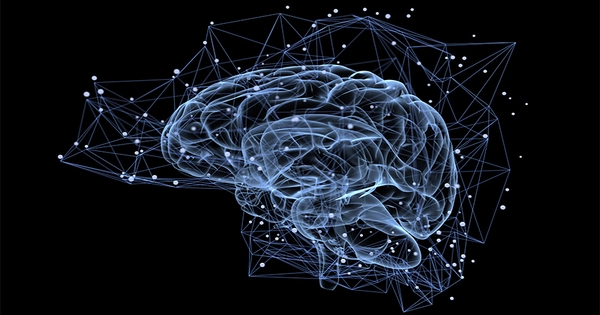Recent studies have provided evidence supporting the role of low levels of serotonin in depression. Serotonin is a neurotransmitter that regulates mood, sleep, appetite, and other physiological functions. Decreased levels of serotonin in the brain have been associated with symptoms of depression, such as sadness, fatigue, and loss of interest in pleasurable activities. However, it is important to note that depression is a complex condition with multiple causes and that a serotonin deficit is just one of many factors that may contribute to the development of depression.
Since the 1960s, researchers have hypothesized that major depression is caused by disruptions in the serotonin neurotransmitter system, but the evidence has been largely indirect. In fact, a recent comprehensive review of existing studies concluded that there was insufficient evidence to support the “serotonin hypothesis.” In the aftermath, some in the field have called for a reexamination of the hypothesis. Not so fast, according to a new study that provides direct evidence of disrupted serotonin release in the brains of people suffering from depression.
Elsevier published the study in Biological Psychiatry.
Depression is one of the most common mental illnesses and causes of disability throughout the world. Despite the lack of direct evidence for disrupted serotonin signaling in the depressed brain, antidepressant medications overwhelmingly target the serotonin signaling system in order to increase extracellular serotonin, also known as 5-hydroxytryptamine (5-HT). Only about half of patients respond to antidepressants, and only about 30% achieve complete remission. A better understanding of 5-HT dynamics in depression could aid in the development of more effective treatments.
This study used a new and more direct method to measure serotonin in the living human brain, and the results suggest reduced serotonin (release) functioning in depression.
David Erritzoe
“Our thinking about the role of serotonin in depression has evolved significantly over the past decade. We once thought that serotonin changes could account for the entirety of depression. When this simple hypothesis could no longer be supported, some were inclined to dismiss any role for serotonin in depression,” said John Krystal, MD, editor-in-chief of Biological Psychiatry. “The current study provides important new support for further exploration of the role of serotonin in depression. This is particularly timely, as drugs targeting serotonin receptors, such as psychedelics, are being explored as potential new treatments for mood disorders.”
The study, conducted by Invicro, a global imaging contract research organization, in collaboration with researchers from Imperial College London, King’s College London, Copenhagen University, and the University of Oxford, used a novel imaging technique to look directly at the magnitude of serotonin released from neurons in response to a pharmacological challenge. Previously, these researchers pioneered the use of positron emission tomography (PET) with the radioligand [11C]Cimbi-36 to detect serotonin release. The current study used this methodology to compare serotonin release in 17 patients with depression and 20 healthy individuals.

David Erritzoe, MRCPsych, PhD, lead author of the paper, said, “This study used a new and more direct method to measure serotonin in the living human brain, and the results suggest reduced serotonin (release) functioning in depression. This imaging method, in combination with similar methods for other brain systems, has the potential to help us to better understand the varying – sometimes limited or even lacking — treatment responses that people with depression have to antidepressant medication.”
The availability of 5-HT2A receptors in the frontal cortex was measured using PET scanning with [11C]Cimbi-36 in participants with depression and healthy controls; the two groups did not differ significantly at baseline. After that, both groups received a dose of d-amphetamine, a stimulant that works to increase 5-HT concentration outside of neurons, where it interacts with 5-HT2A receptors and reduces [11C]Cimbi-36 binding. Healthy control participants had significantly reduced 5-HT2A receptor availability in a second scanning session three hours after drug administration, indicating an increase in serotonin levels. Participants with depression, on the other hand, did not show a significant decrease in binding potential, implying that their serotonin release capacity was blunted in key brain regions.
The study found no relationship between the severity of depression and the extent of serotonin release capacity deficits. Of note, all patients were free of antidepressant medication, and 11 out of the 17 had never received antidepressant treatment, indicating that low serotonin release capacity is a feature of depression rather than a result of antidepressant treatment.
This first direct assessment of serotonin levels in the brains of people suffering from depression is a significant step toward putting to rest speculations about the role of serotonergic neurotransmission in the pathology of depression. Depression is a complex disorder with numerous causes, and different subtypes may involve multiple neurotransmitter systems. Serotonergic dysfunction is unlikely to account for all of the clinical manifestations of this disorder. Nonetheless, this study shows that serotonergic deficits exist in unmedicated depressed people.
Eugenii Rabiner, MBBCh, FCPsych SA, senior author of the paper at Invicro, stated, “It took our field over 20 years to develop a method for measuring serotonin release in the living human brain. I am very pleased that we were able to develop and apply this method to clarify this important aspect of depression pathophysiology. I hope that in the future, we can use this technique to investigate the various symptoms of depression, as well as serotonergic deficits found in other conditions such as Parkinson’s disease.”
















